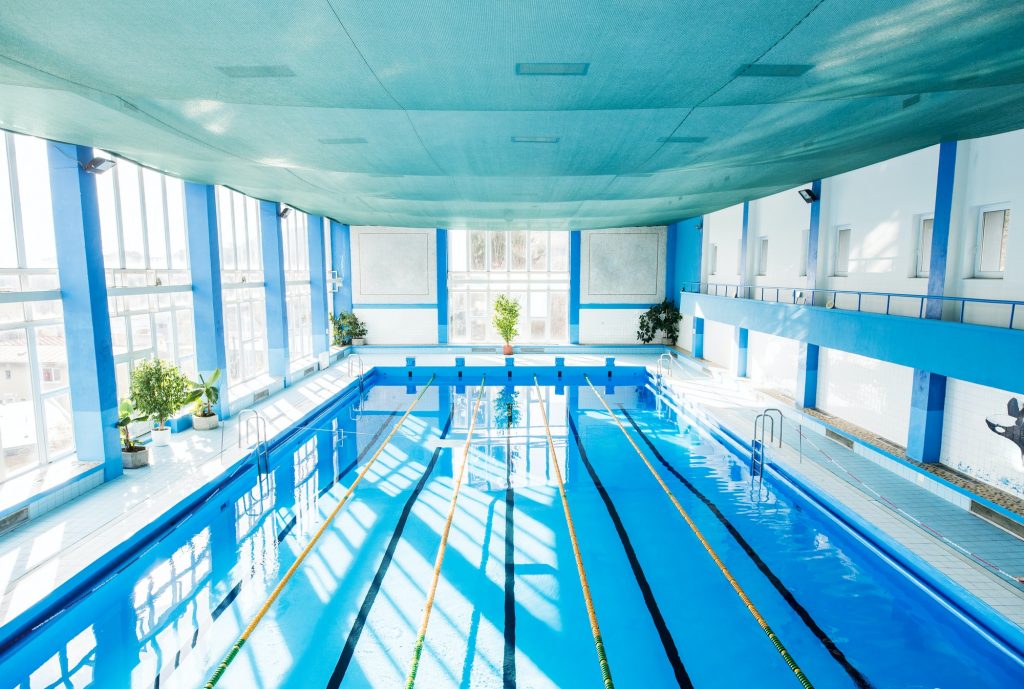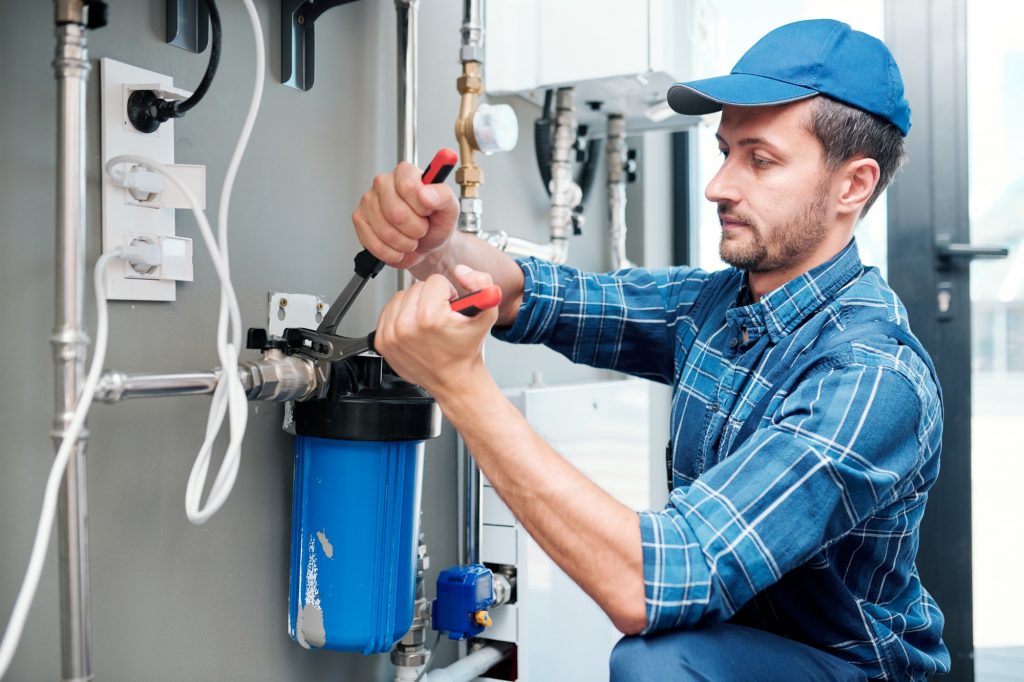Saltwater pool maintenance differs completely from chlorine pool maintenance. Trying to do it the same way as a chlorine pool could destroy your saltwater pool. However, it is a lot easier to maintain a saltwater pool.
A saltwater pool has lesser chlorine in it. Also, you only need a few chemicals to maintain it. The most important aspect of saltwater pool cleaning is to ensure that your pool has enough salt in it that will help the generator work.
You would also spend less to maintain your saltwater pool as compared to a chlorine pool. The primary reason here is that saltwater generates chlorine from it.

Clean the Pool Regularly
This might sound pretty obvious, but it is very important that you clean your pool regularly. A lot of pool cleaning tools do not last long when you use them for saltwater pool cleaning. You would need tools that are appropriate for saltwater pools.
Clean your pool at least two times a week. However, if your pool is open and in an area with lots of trees, you might need to clean it more often.
Remove debris and dirt from the face of the pool. You could use a mechanical cleaner or a pool vacuum attachment. The vacuum cleaner will suck out the dirt in the pool.
Microorganisms could thrive in your pool when you don’t clean it regularly. The organisms could also multiply and cause disease to users of your pool. We cannot overemphasize the thorough cleaning of your pool.
As you take care of your pool, also remember to take care of the pool equipment. If you don’t take proper care of your pool equipment, it could start splashing water beyond the pool line. The long-term effect of this is that it could damage your pool.
Ensure proper circulation of pool water
Ensuring that your pool circulates properly is also important. There are various ways to check if your pool is circulating properly.
Some pool owners use detectors to check for salt concentration. When the salt concentration level is similar across the pool, it shows that the pool is circulating properly.
Where the salt concentration is different around the pool, it shows that the pool water is not circulating properly. Then, you would need to adjust the jet angles. It is difficult for impurities to gather in your pool if it circulates well.

Maintain the chemistry of the pool
Your saltwater pool needs to have the right balance of chemicals in it. It is an important aspect of salt water pool maintenance. If there is a balance in the water chemistry, saltwater pool cleaning becomes easier.
A saltwater pool with balanced chemistry is easier to maintain. With little effort, you would have a pool that is crystal clear. When there is an imbalance in the water chemistry, the water becomes harder.
When the water is harder, it requires more effort to clean it. It would take more effort to keep out algae. The pump run will also be longer and it would require more filtration.
Apart from these, having an unbalanced saltwater pool is not safe for users of the pool. It also presents a dangerous pool condition for the pool equipment and surfaces.
Pay attention to the pool’s pH
The pH level of your pool is also very important. Ideally, the pH level for a saltwater pool is 7.4 and within the safe range for drinking water. Although the pH level of your pool would keep fluctuating, it is likely to keep increasing. Pay close attention to it. You would need to lower it where necessary.
Ensure the salt chlorine generator works
Usually, saltwater has an electronic salt chlorine generator. The SCG would use the low salinity in the water to produce chlorine as it works. Your duty is to ensure that the SCG is working at all times.
Sometimes, calcium and other minerals can build up in the SCG and so you need to examine it regularly. Where this is the case, clean it by pulling out the debris. A solution of clean water and muriatic acid can also help or you could have a professional check it out.
You also need to ensure that at all times, the chlorine produced by the SCG matches the demand for it. Otherwise, there would either be a shortage or excess chlorine in the pool.
If there is more demand for chlorine than the SCG can produce, the residual chlorine level would drop in the water, making it cloudy. However, if the SCG produces more chlorine than necessary, the residual chlorine level would be higher.
You can fix the produced level of chlorine. All you need to do is adjust the amount of chlorine generated based on the demand for it. If the demand for it is lesser, you can reduce the amount generated by the SCG. Where the demand for chlorine is higher, you would also have to increase the amount produced.
Avoid having high-salinity of the pool
Different manufacturers usually have specifications for the salt level that you should maintain in the pool. You would need to check the salt level of your pool to be sure that it is within the manufacturer’s specification.
Use a saltwater test kit to check for the salt level. If the salt level of your swimming pool is low, you can increase it by adding salt to it. Usually, the required salinity level would be within a range of 3000-3500 parts per million (ppm).
Conclusion
If you do it properly, saltwater pool maintenance can enhance the overall outlook of your property. It could also increase the value of your property. To make it easier for you, you can schedule the same day every week or month for your saltwater pool cleaning. However, if these look like a lot of work for you, you could simply get saltwater pool maintenance professionals to look at your pool regularly and have it cleaned. We’ll be happy to hear from you and give you 100% of our assistance in restoring the beauty of your pool, over and over again.



